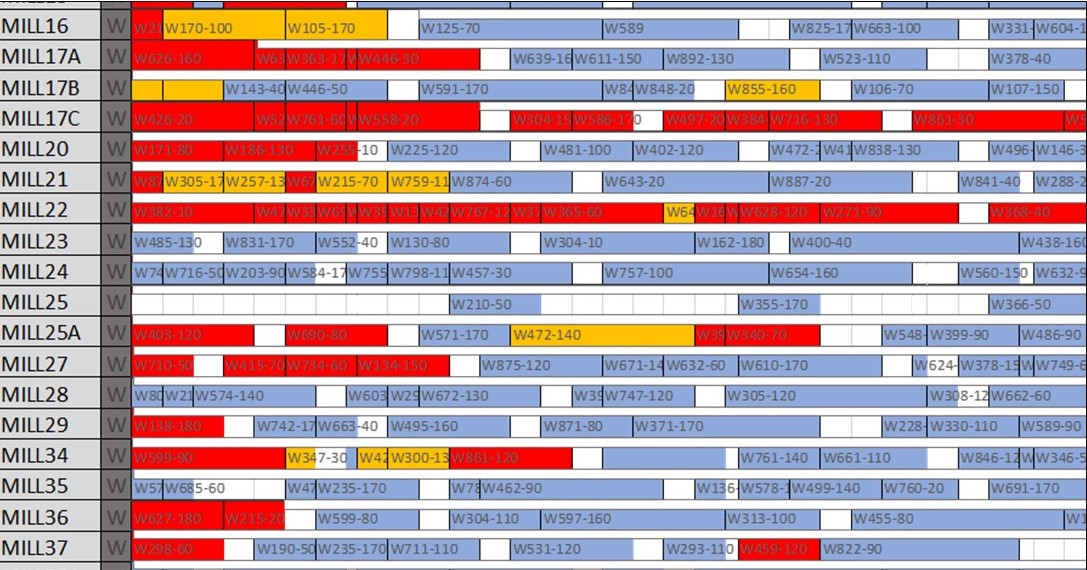
Six Basic Requirements for Effective Production Scheduling
- On 04/28/2018
Many, if not most, manufacturing organizations feel that their ERP production scheduling isn't what it should be. Some firms have chosen not to employ their system's production scheduling altogether and have instead managed to forge ahead using manual scheduling methods.
There are several layers of requirements that effective ERP production scheduling must abide by. There are certainly a variety of detailed considerations and decisions when setting up production scheduling: Backwards or forwards scheduling? Finite capacity or infinite capacity? Backflushing? Frozen fences or date locking? The list of control knobs and levers has become increasingly long with these modern systems
In general, the number one factor affecting the effectiveness of your ERP production scheduling is having the right philosophical understanding of what a schedule is and how it can effectively employed.
The video below explains more:
However, for this article, let's take a look at some other considerations that are fundamental in nature and form some of the basic requirements for effective production scheduling.
1. Adequate Production Quality
Poor in-process quality often leads to unplanned scrap and rework events. Schedule performance therefore suffers accordingly. Of course, some level of quality defects can be planned for by setting yield percentages and incorporating buffer time within the schedule to account for such eventualities. However, poor manufacturing quality will render any schedule useless once it falls below tolerable levels. Strong quality control will enhance and support effective production scheduling.
2. Accurate Manufacturing Capacity
Production scheduling cannot be effective if the available capacity portrayed within the system does not accurately reflect the physical operation. This is essentially a master data management challenge to keep the system current and accurate. This is not always straightforward when the production process involves a combination of man and machine. Fortunately, there are approaches that one can take to check and calibrate the system to ensure that the capacity of each work center is accurately and effectively defined.
3. Reliable Suppliers
Suppliers must be able to provide materials within planned lead times. If suppliers consistently miss their scheduled PO due dates, then the question needs to be asked "why"? In some cases, there is something the company can do to help. Constant expedites and changing requirements aren't helpful to suppliers' delivery performance. Steps must be taken to prevent volatility from being passed downward through the supply chain.
4. Stabilizing Customer Demand
As with your suppliers, you do not want your customers passing their internal demand volatility on to you. In many industries, we can accept that sporadic demand spikes are part of the business. Effective demand management policies and scheduling practices can help reduce the negative impact of changing customer demand.
The video below illustrates the importance of controlling schedule volatility in your supply chain.
5. Accurate BOMs
Manufacturing bills of materials (BOMs) must accurately reflect the product structure. No production schedule stands a chance if BOMs and part numbers aren't correct.
6. Accurate Routings
Like BOMs, manufacturing routings must also be accurate. The correct specification of operations and work centers (a.k.a., resources) is critical as are setup and run times. However, don't let less-than-perfect time standards hold you back. Setup and run times will drive where scheduled due dates are placed on the timeline but these only need to be valid as first-order estimates. The sequence of operations performed at specific work centers is what is most important.
Altemir Consulting (www.altemirconsulting.com) specializes in production scheduling and control for small, medium, and large manufacturers. Contact us to learn how we can help revitalize your operation.
